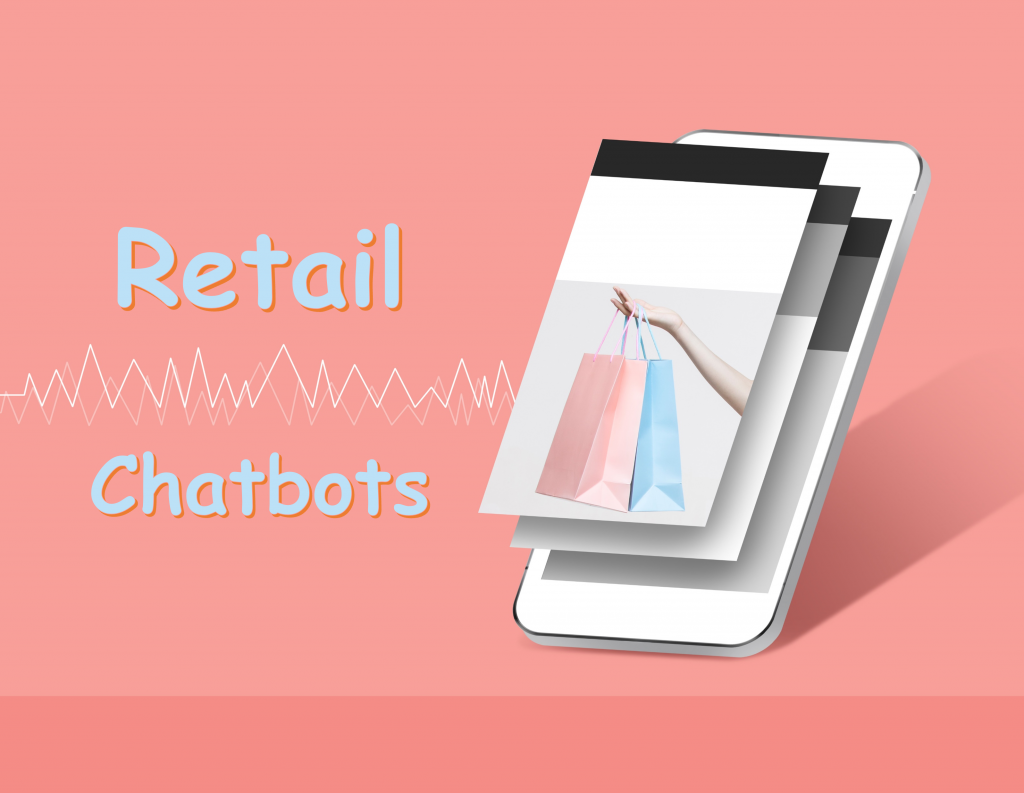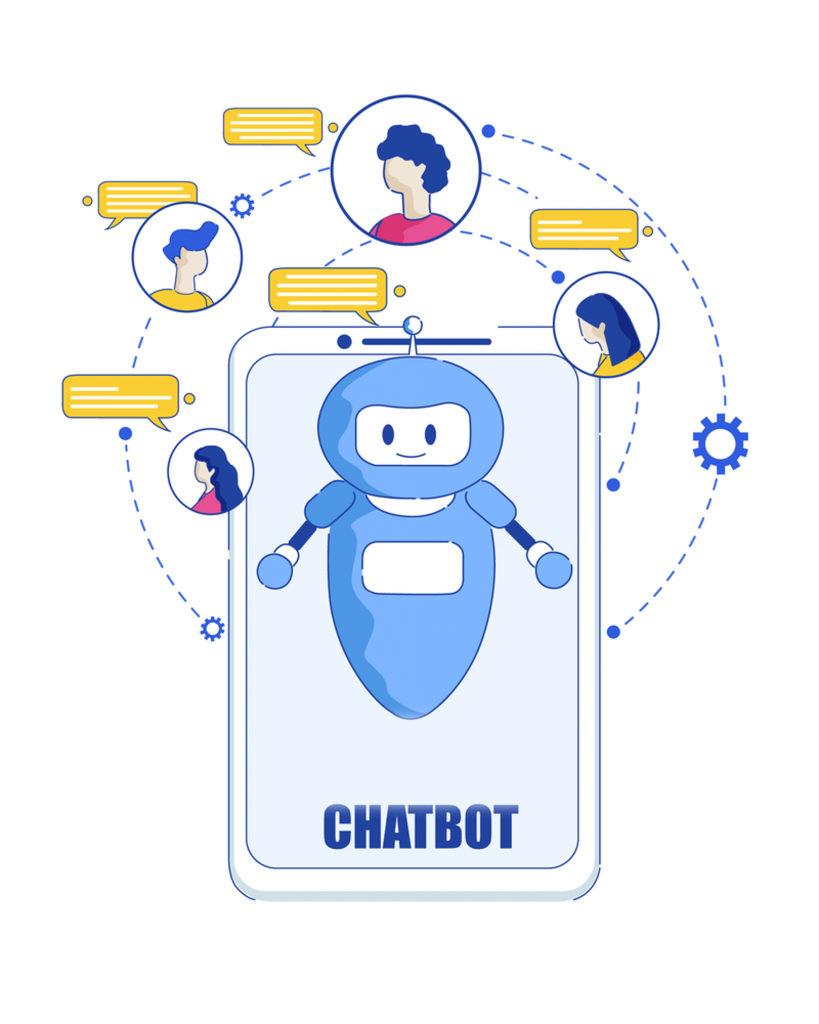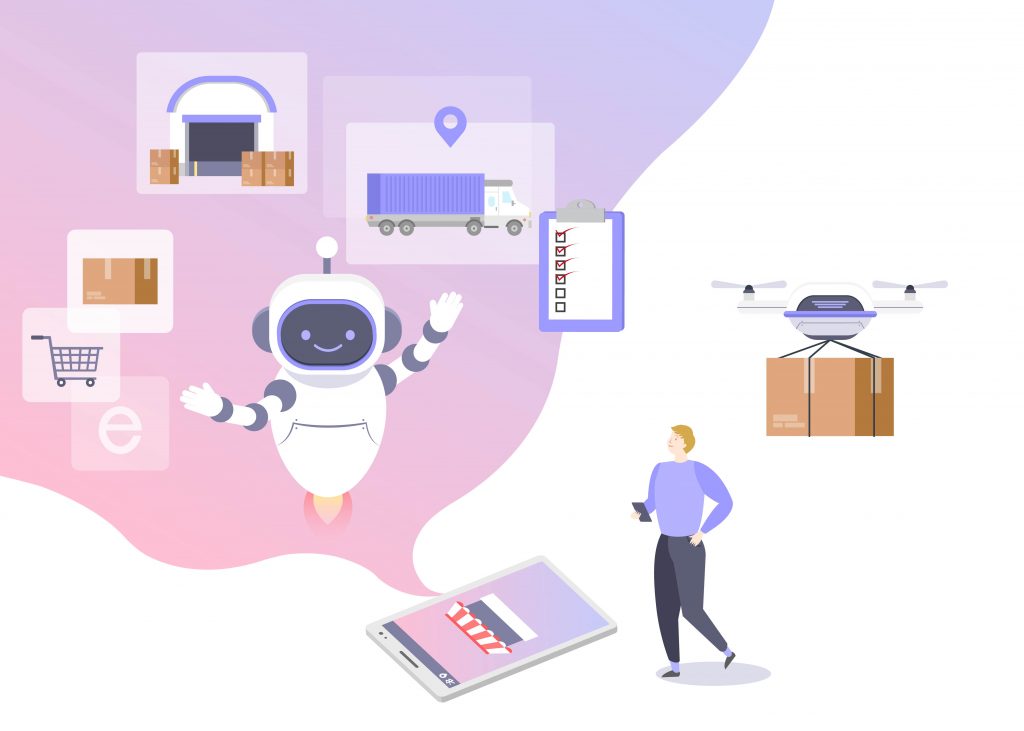
Over 75% of people shop online at least once a month. Although brick and mortar stores are still taking up a large portion of general sales in the retail industry, consumer spending on online shopping, a.k.a e-commerce, has been steadily increasing in the past few years. Since the demand and competition are skyrocketing every day, business owners are pressured to act accordingly to meet the customers’ demand and survive in the competition.
Since e-commerce is a relatively new term in the retail industry, let us define what it really is.
Anything you buy or sell online and make or receive payment online is e-commerce. Simple enough? Some of the examples are Amazon and Alibaba. They are both web as well as app-based platforms where people from all over the world can buy and sell stuff. However, with the recent surge of smartphones and instant messaging apps, e-commerce has started to shift from websites and mobile apps to those instant messengers through the help of chatbots. Chatbots have changed the game entirely in this particular industry, and here is how they do it.
Personalize customer experience

First off, there is no doubt that customer experience is everything. Businesses are striving to provide the best experience to their customers through various methods. One of the cheapest and easiest ways of achieving that is through chatbots on instant messaging apps. With billions of monthly active users, instant messengers are the perfect place to meet customers of various ages and genders. Once businesses deploy their chatbots on any messengers and get their customers to join the chat through QR codes or links, chatbots do the rest of the job. The more chatbot talks to people, the smarter it gets and provides more personalized experiences. For instance, in the case of clothing retailers, their chatbots can learn the customers’ fashion preferences by asking questions or picture polls. They can save the size of the customer by simply asking again or after a few orders are placed. What’s more, few purchases can enable chatbots to learn about the price preferences as well so that they can recommend the right priced product in the future.
Cross-sell & up sell

Until recently, people would not believe it if they were told chatbots could possess upselling and cross-selling skills because sales representatives spend months, if not years, mastering these skills. Obviously, nobody is claiming that chatbots can replace sales representatives or perform upselling & cross-selling better than them. The narrative here is that chatbots are progressing well and emerging in various parts of the business operations. However, they are primarily in the beginning phases of them. Machine Learning (ML) technology, which many chatbots use, helps store the information from the chat and processes it using Intelligent Analysis (IA), then performs up and cross-selling by recommending the right products at the right time with the right prices. What makes chatbots stand out is that they go through all those complicated analysis processes within a few seconds, which matters a lot when dealing with busy customers.
Simplified check-out

Who would have thought there could be an easier and simpler way of making online payments than PayPal? Chatbots have come to the point where customers can make payments with only a few tabs on their favorite instant messaging app. When completing the initial setup process, the chatbot asks for several details regarding the customers’ bank accounts. Next, it sets up a unique password for only chatbot online payments. Then, to increase the security, even more, customers themselves can choose to set up a set of hint questions to be asked in the final stage of the online payment check-out process. From then on, surfing through the online shop and making the payment for the order can be completed without leaving the instant messenger.
Feedbacks

Even though feedback can be both positive and negative, in most cases, people in the retail industry perceive it as a negative thing, and that is totally reasonable. The reason is that not everybody leaves positive feedback or reaches out to customer service centers to say nice words when they love the product that they bought online (some people do that, though). However, it is a completely different story when they encounter any issue with a product or if there is anything wrong with it. They leave long detailed comments on the website or even try to reach out to the brand to complain. We are not saying that what they do is not correct; we are just giving the reason why feedback in the e-commerce sector is usually considered negative. When that feedback reaches the customer service centers, handling them appropriately is a very vital task in preventing the customer from becoming disappointed and switching to competitors. Chatbots are again saving hundreds of thousands of businesses from a big headache because as chatbots can stay online around the clock, customers can send their feedback at any time and solve their problems immediately.
Return goods

Online shopping can become addictive, and many people end up buying things that they are not really sure they need. Or sometimes, they might order stuff without thoroughly going through the specifications. So what happens then is they are stuck with a bunch of unwanted items. While many online stores accept returns and offer refunds, that process is just a bigger hassle than ordering it in the first place. Sadly that results in unhappy customers, which no business ever wants. However, return and refund management has been made easy with chatbots. Customers can chat with respected chatbots 24/7, fill out the application form, and apply via the same chat with a few messages. Chatbots, afterward, collect the data and forward it to human agents in an excel format. All that’s left after that is shipping the package back and waiting for a refund to arrive at their bank account. Result? Happy customers, happy businesses.
Which one of the above-mentioned use cases do you think is the most revolutionary in your opinion? Also, would you have any other chatbot use cases in mind that would benefit retail businesses in the future? Please feel free to comment your thoughts in the comment section below!
5 Reasons – Chatbots are the Future of the Retail Industry – Makebot.ai
https://manonnomori.com/blog/valentinewrapping/
5 Reasons – Chatbots are the Future of the Retail Industry – Makebot.ai
https://baitapkegel.com/kien-thuc/suc-khoe/cac-benh-tinh-duc/cac-benh-tinh-duc-2/
5 Reasons – Chatbots are the Future of the Retail Industry – Makebot.ai
http://star-ship-jpn.com/bmc/?p=318
5 Reasons – Chatbots are the Future of the Retail Industry – Makebot.ai
https://kingtravelbanyuwangi.com/travel-banyuwangi-ke-surabaya-chek-info-keberangkatan.html
5 Reasons – Chatbots are the Future of the Retail Industry – Makebot.ai
https://store.volusion.co.uk/click.asp?Click=45812
5 Reasons – Chatbots are the Future of the Retail Industry – Makebot.ai
http://hgt.ba/index.php?option=com_k2
5 Reasons – Chatbots are the Future of the Retail Industry – Makebot.ai
https://www.shadhinkantho.com/আটকে-থাকা-লাশটি-কার/
5 Reasons – Chatbots are the Future of the Retail Industry – Makebot.ai
https://livresancienmonde.com/liste-lot-livres-moderne/
5 Reasons – Chatbots are the Future of the Retail Industry – Makebot.ai
http://blog.imyzi.com/?p=14
5 Reasons – Chatbots are the Future of the Retail Industry – Makebot.ai
https://piroshki.net/traffic/2019/08/663/
5 Reasons – Chatbots are the Future of the Retail Industry – Makebot.ai
https://dent-mart.com/hello-world/
5 Reasons – Chatbots are the Future of the Retail Industry – Makebot.ai
https://www.n9-create.com/translucent-ceiling/